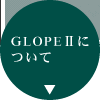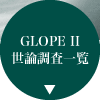予定表 -詳細情報-
| 件名 | WS 海老名 剛氏 |
| 開始日時 | 2009年 12月 10日 (木曜日) 16時30分 (GMT+09:00) |
| 終了日時 | 2009年 12月 10日 (木曜日) 18時00分 (GMT+09:00) |
| 場所 | 1号館401室 |
| 詳細 | 【報告者】海老名剛 (東京工業大学社会理工学研究科博士課程) 【タイトル】 Option Package Bundling 【場所】1号館401教室 【概要】 海老名氏は、まもなく東京工業大学に学位申請論文を提出するおもに混合寡占を研究領域とする若手研究者である。今回の報告は制度設計の深くかかわるメカニズムデザイン分野の典型的な応用例である抱き合わせ販売価格に関するものである。 Option package bundling problems arise if there is an optional good, which is valuable only if a certain (non-optional) base good is consumed together. A firm that produces both types of goods then faces the decision of whether to sell them only in a package (pure bundling), or to sell base goods both with or without optional goods, leaving the choice of consuming them together to buyers (mixed bundling). We study a model of a monopolist's option package bundling problem, in which the monopolist produces base and optional ones, with no marginal costs, and buyers' valuations are independently and uniformly distributed. We derive the optimal bundling prices, and verify that mixed bundling outperforms pure bundling if and only if the range of optional good valuation exceeds a certain size. We argue that the result is robust except in the case where the marginal cost is higher than the lowest valuation for an optional good. This suggests an interesting testable implication: the smaller the diversity of the valuation of an optional good, the more likely that the monopolist adopts pure bundling. |
| カテゴリー | ワークショップ・セミナー |








